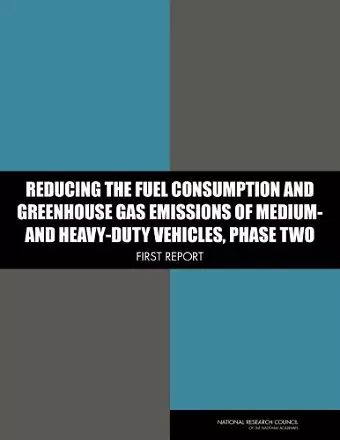Reducing the Fuel Consumption and Greenhouse Gas Emissions of Medium- and Heavy-Duty Vehicles
First Report
National Research Council author Division on Engineering and Physical Sciences author Board on Energy and Environmental Systems author Transportation Research Board author Committee on Assessment of Technologies and Approaches for Reducing the Fuel Consumption of Medium- and Heavy-Duty Vehicles, Phase Two author
Format:Paperback
Publisher:National Academies Press
Published:2nd Oct '14
Currently unavailable, and unfortunately no date known when it will be back

Medium- and heavy-duty trucks, motor coaches, and transit buses - collectively, "medium- and heavy-duty vehicles", or MHDVs - are used in every sector of the economy. The fuel consumption and greenhouse gas emissions of MHDVs have become a focus of legislative and regulatory action in the past few years. Reducing the Fuel Consumption and Greenhouse Gas Emissions of Medium- and Heavy-Duty Vehicles, Phase Two is a follow-on to the National Research Council's 2010 report, Technologies and Approaches to Reducing the Fuel Consumption of Medium-and Heavy-Duty Vehicles. That report provided a series of findings and recommendations on the development of regulations for reducing fuel consumption of MHDVs. This report comprises the first periodic, five-year follow-on to the 2010 report. Reducing the Fuel Consumption and Greenhouse Gas Emissions of Medium- and Heavy-Duty Vehicles, Phase Two reviews NHTSA fuel consumption regulations and considers the technological, market and regulatory factors that may be of relevance to a revised and updated regulatory regime taking effect for model years 2019-2022. The report analyzes and provides options for improvements to the certification and compliance procedures for medium- and heavy-duty vehicles; reviews an updated analysis of the makeup and characterization of the medium- and heavy-duty truck fleet; examines the barriers to and the potential applications of natural gas in class 2b through class 8 vehicles; and addresses uncertainties and performs sensitivity analyses for the fuel consumption and cost/benefit estimates.
ISBN: 9780309302371
Dimensions: unknown
Weight: unknown
116 pages